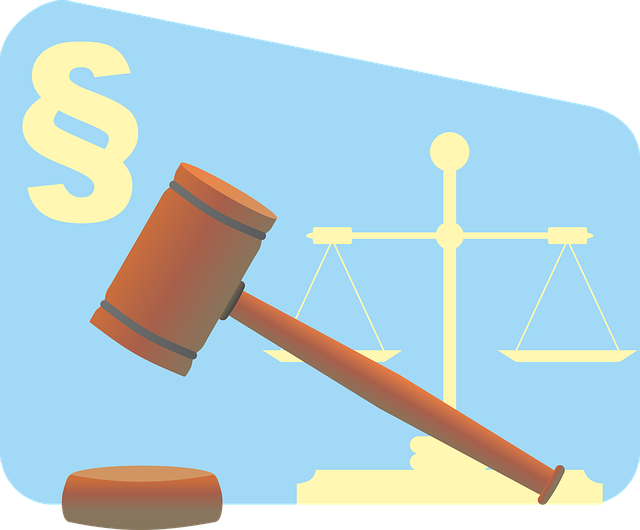RF Regulatory Agency investigations play a vital role in upholding wireless communication laws, focusing on spectrum usage, dispute resolution, and compliance checks. For individuals and businesses involved in telecommunications or litigation related to white-collar crimes, understanding this process is crucial for fair practices and risk mitigation. Settling Property Disputes Through Litigation involves filing complaints, gathering evidence, and presenting arguments before a neutral authority, ensuring justice. Navigating these legal complexities demands strategic planning, expertise in regulatory landscapes, and a comprehensive approach that considers community influences. Proactive engagement in dialogue, mediation, and arbitration can lead to successful outcomes and enhanced defense verdicts.
“RF Regulatory Agency investigations play a pivotal role in ensuring compliance with radio frequency standards. This comprehensive guide explores the intricacies of these inquiries, focusing on understanding the process, especially in property dispute scenarios. When controversies arise, we delve into initiating the litigation process, emphasizing knowledge as a powerful tool. Navigating the legal landscape for settling property disputes through litigation is crucial, offering strategies for achieving successful outcomes. Each section provides insights to help stakeholders manage and resolve RF-related conflicts effectively.”
- Understanding RF Regulatory Agency Investigations
- When Disputes Arise: Initiating the Litigation Process
- Navigating the Legal Landscape for Property Disputes
- Resolving Conflicts: Strategies for a Successful Outcome
Understanding RF Regulatory Agency Investigations

RF Regulatory Agency Investigations play a crucial role in ensuring compliance with wireless communication laws and standards across the country. These agencies are tasked with examining various aspects of the radio frequency (RF) spectrum usage, including licensing, interference, and safety. When disputes arise regarding RF-related activities, such as property conflicts linked to tower installations, these agencies often step in to mediate and resolve them.
Understanding the process is vital for individuals and businesses alike, especially those involved in the telecommunications sector or settling property disputes through litigation related to white collar and economic crimes. The investigations involve a meticulous review of regulations, evidence collection, and fact-finding. This ensures that all parties adhere to legal frameworks, promoting fair practices in the RF spectrum utilization while mitigating potential risks associated with non-compliance.
When Disputes Arise: Initiating the Litigation Process

When disputes arise regarding RF (Radio Frequency) technologies or their regulatory aspects, initiating a litigation process can be a critical step in resolving such conflicts. Settling property disputes through litigation is a well-established method to ensure justice and fair play, especially in the complex landscape of telecommunications. This formal process allows parties involved, which could include various stakeholders across the country, including respective business, philanthropic, and political communities, to present their arguments and evidence before a neutral authority.
The first step typically involves filing a complaint with the relevant RF Regulatory Agency, outlining the nature of the dispute. Once initiated, the agency investigates the matter, gathering information and assessing the validity of the claims. This investigation phase is crucial in gathering evidence that can support or refute the allegations, ultimately guiding the subsequent legal proceedings.
Navigating the Legal Landscape for Property Disputes

Navigating the legal landscape surrounding property disputes can be complex, especially when facing an investigation by a Radio Frequency (RF) Regulatory Agency. In such cases, settling these disputes through litigation becomes a strategic maneuver, requiring meticulous planning and expertise. An unprecedented track record of successful resolution is crucial for ensuring fairness and protecting interests while avoiding potential indictments.
Understanding the intricate web of regulations and laws pertaining to property rights is essential. This involves delving into legal precedents, interpreting statutes, and considering the evolving dynamics within philanthropic and political communities. The goal is to devise strategies that not only defend against allegations but also facilitate positive outcomes, ultimately fostering a balanced approach to resolving these disputes.
Resolving Conflicts: Strategies for a Successful Outcome

When facing RF Regulatory Agency investigations, resolving conflicts through litigation can be a strategic move for a successful outcome. Settling property disputes involves navigating complex legal terrain, but it offers an alternative to prolonged and costly battles. In many cases, parties can reach mutually agreeable solutions by engaging in open dialogue and exploring various dispute resolution methods, including mediation and arbitration. These processes facilitate a collaborative environment, allowing for creative negotiations that might not be attainable through traditional jury trials.
By embracing all stages of the investigative and enforcement process proactively, organizations can enhance their chances of winning challenging defense verdicts. This proactive approach entails gathering comprehensive evidence, meticulously documenting compliance efforts, and fostering transparent communication with regulatory bodies. Through strategic planning and a deep understanding of the legal framework, entities can effectively address allegations, present compelling defenses, and ultimately secure favorable outcomes in litigation.
RF Regulatory Agency investigations can significantly impact property disputes, especially in ensuring compliance with radio frequency (RF) standards. Understanding these processes and initiating litigation where necessary is key to settling property disputes through litigation effectively. Navigating the legal landscape requires a strategic approach, focusing on understanding regulations, gathering evidence, and employing successful conflict resolution strategies. By delving into these aspects, individuals and businesses can resolve RF-related property disputes efficiently, ensuring compliance and peace of mind.






